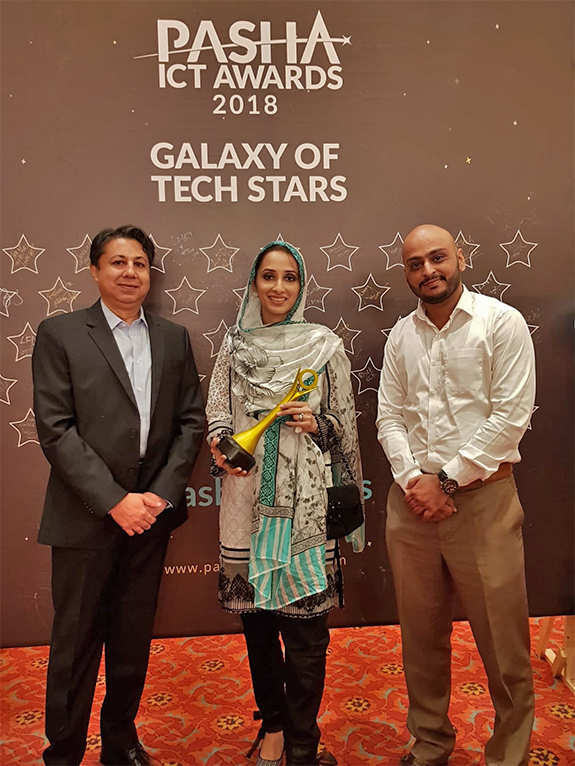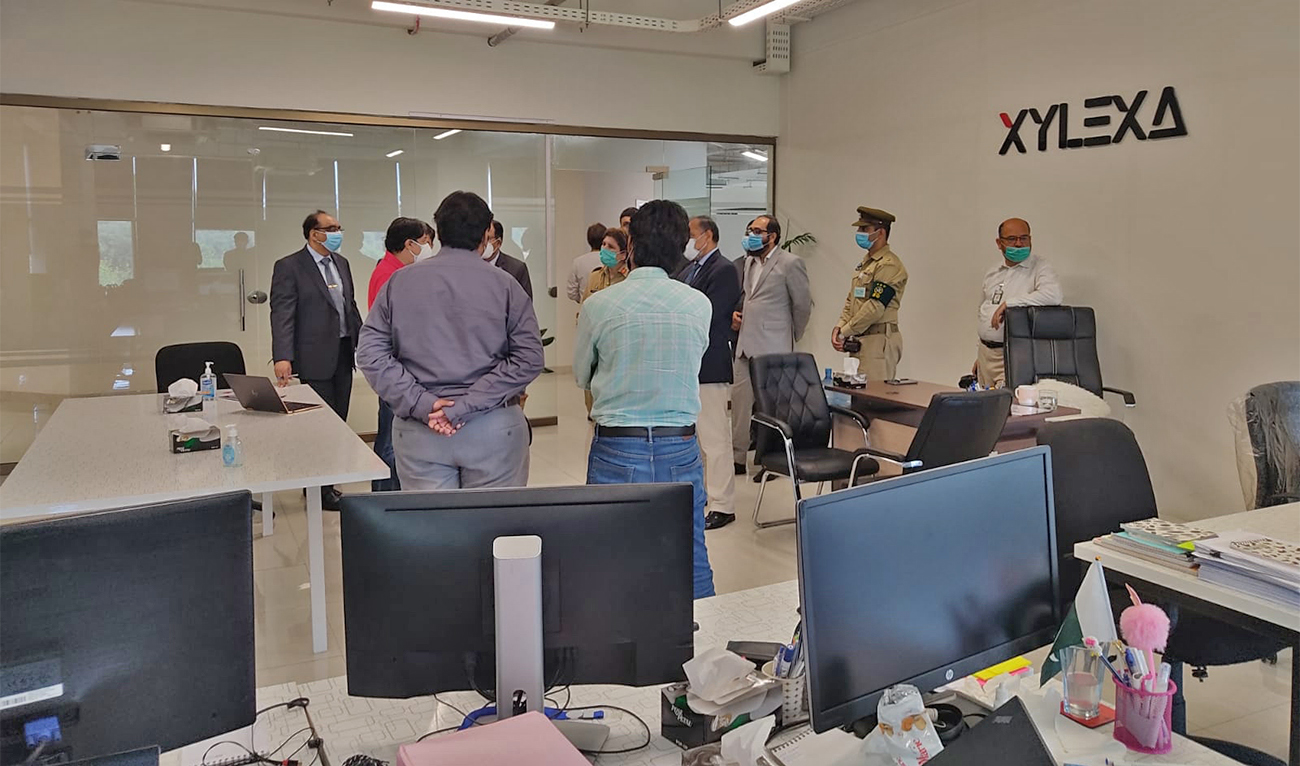ISLAMABAD: An award-winning Pakistani startup that uses artificial intelligence and cloud-based tools for breast cancer detection is now working on getting approval from the US Food and Drug Administration (FDA) and pursuing expansion into Arab countries, the founders of the firm said this week.
According to the International Agency for Research on Cancer (IARC), Pakistan has the highest breast cancer rate in Asia, with one out of nine Pakistani women now facing a lifetime risk of the disease. The country also has one of the highest breast cancer mortality rates globally.
Known as Xylexa, the Islamabad-based startup was founded in 2018 by entrepreneurs Shahid Abbasi, Shahrukh Babar, and Neda Nehal who met each other by chance at an IT industry event in 2017.
The three individuals thus embarked on a mission to fight the disease by empowering radiologists ‚ÄĒ medical doctors that specialize in diagnosing and treating injuries and diseases using medical imaging procedures ‚ÄĒ with tools and technologies that would render improved clinical outcomes for the patients.
‚ÄúWe have developed a decision support program for interpretation of medical images which use cutting edge technologies like artificial intelligence, computer vision, and deep learning that would help radiologists attain better clinical insights,‚ÄĚ Abbasi, the co-founder of the startup, told Arab News in an interview in Islamabad this week.

Xylexa team poses for a picture after receiving the Pasha Technology of the Year Award in Islamabad, Pakistan on September 7, 2018. (Photo courtesy: Xylexa)
The inspiration to do something for breast cancer patients came when a close relative was diagnosed with the disease at a very late stage, he said.
‚ÄúWe got together as a group and decided to do something about it and use technology as a medium to save more lives,‚ÄĚ Abbasi added.
The first set of algorithms that Xylexa developed was for the detection of breast cancer using mammography, he said, and its clinical evaluation was successfully concluded after the hard work of three and half years.
‚ÄúWe are not just stopping at mammography but now we are focused on developing support for 14 different diseases that require chest x-rays and have also developed algorithms for protection of blockages within the arterial system,‚ÄĚ Abbasi said.

 Lieutenant General Nigar Johar, Surgeon General Pakistan Army (2nd right) is visiting Xylexa office in Islamabad, Pakistan on September 13, 2021. (Photo courtesy: Xylexa)
The entrepreneur said his company’s product delivered results with an up to a 95 percent accuracy ratio, thus giving 24 percent better results than traditional radiology examination.
‚ÄúIf you look at the market data available for the accuracy of radiologists‚Äô readings, it ranges anywhere between 71 percent to 82 percent. On the other hand, the accuracy rates of three algorithms that we have developed for mammography, chest x-ray, and peripheral artery disease detection ranges anywhere between 89 percent to 95 percent,‚ÄĚ he added.
After developing an AI and cloud-based platform to provide support for breast cancer detection, Xylexa put it through clinical validation at various medical facilities in Pakistan and abroad.
According to StartUs Insights, an Austrian company that has evaluated almost 359 companies across the globe using artificial intelligence in health care, Xylexa was among the top five performers in this domain.
Babar, another co-founder of the startup, said the team was now applying for approval from the Food and Drug Administration (FDA) in the United States after completing clinical trials.
‚ÄúWe ran a trial in Pakistan with Fouji Foundation Hospital, Islamabad Diagnostic Center, and Epiphany Labs,‚ÄĚ he said, adding that the startup was also expanding to Arab countries.
‚ÄúRecently, we got our first contract in Lebanon and we are looking at a few opportunities in ∂∂“ű∂Ő ”∆Ķ too. We have already carried out trials with the King Fahad Hospital in the Kingdom and now are in talks with a few potential partners in Dubai as well.‚ÄĚ
Babar said breast cancer could be successfully cured with early detection.
‚ÄúIf breast cancer is diagnosed at an early stage, chances of survival are 90 percent,‚ÄĚ he said. ‚ÄúIf it is diagnosed at a later stage, then chances of survival remain 25 percent or even less.‚ÄĚ













